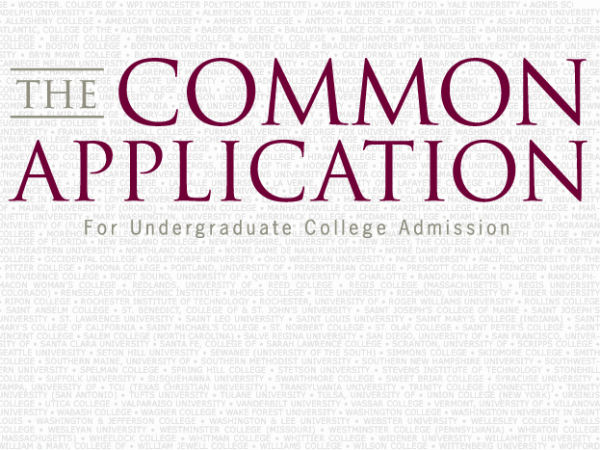When I first sat down to do my college applications, lost didn’t even begin to describe how I felt. I was the oldest child in my family to begin the process and compared to some of my friends with seasoned college admissions parents, I didn’t even know where to begin. As I began surveying my peers on their process it became apparent, actually no one really had a clear idea of where to begin tackling the college admissions process. From that point on I began a mission, a mission of spending countless hours making lists of questions and finding the answers through the counseling office, research, and even some admission representatives themselves. So now, I am confident in saying that, while it may seem quite daunting, with good planning and dedication the marathon of college applications can seem more like a high-paced walk. The key to a good strategy of college applications is a well thought- out plan. With all the weight these applications hold, planning ahead is a must.
Plan to have taken all your standardized tests during your junior year and then maybe one in the very beginning of your senior year. Don’t wait to take the SATs or ACTs! This will only cause you much unneeded stress.
During the Summer between your Junior and Senior year is an excellent time to really narrow down your list of colleges you’re applying to. As tempting as it might be to apply to 25 colleges, the reality is you will probably get into most of them and then have an even bigger dilemma deciding. Pick schools that are realistic, try to narrow them down by the categories: reaches, targets, and safety schools.
Reach schools are colleges that may be slightly above your range of possible acceptance. Target schools are colleges that are perfectly within reach of your chance of acceptance. Safety schools are colleges that are slightly below your range of possibly acceptance that your are supposedly guaranteed to be accepted in to. Try to see if you can get it down to five of each category, and then whittle it down from there.
The reality of the application process is that, unless all your schools are Common Application or a system application (UC system), you will get burned out. So if every school on your list has a separate application, your dedication to those schools will definitely be tested. There is nothing wrong with filling out ten different applications, but just be positive that you can really see yourself at each school.
Another key component to staying on top of it all is taking advantage of the essay prompt being available during the Summer. The major essays are a big hurdle, and once you have checked off the essays, your only worries are the application and the equally daunting supplements. Make sure you’re not writing “what colleges want to hear.” College admission offices get thousands of those a year. Instead, write about something as unique as you and channel what you have to offer. What experiences make you a great addition to their campus? Make sure you stay positive. Even if you’re highlighting a challenge you have faced, highlight how you have bounced back, why you’re better for it, or what you can offer because of it.
Also, with all the essay writing and multiple essay prompts asking just about the same question, it is tempting to use the same essay. Proceed with caution because every admissions counselor shares the story of the great candidate who in their essay used another college’s name! You do not want to be that kid.
Every university has its own way to apply. The most common one (pardon the pun) is the Common Application. However, this year the Common Application launched a whole new look, and with it came some severe complications. As many as 42 schools have postponed their early action deadlines due to students being unable to submit. The Common Application, according to their website, is working hard to fix the issues. Although this is an inconvenience, working to be done at least a week before your due date is advisable due to traffic being less intense then.
When filling out the actual Common Application, many students have been struggling to summarize all their activities, grades, and accomplishments. Students like Senior Becca Kuypers, have been finding inventive ways to effectively work on their applications. “I like printing out my unofficial transcript and highlighting the classes that they will want written down,” said Becca.
Another student Amy Gallager has learned the importance of a résumé, “I found making an official résumé of all my activities and accomplishments has really helped me when colleges ask for activities of significance and descriptions of them,” said Amy.
Senior Madi Marshall learned an important lesson this year about sending SAT scores, “I always thought you had to wait until they asked for them, but now I realize I should send them from the College Board a minimum of three weeks before I apply,” said Madi.
The Common Application, while designed to be easy, is actually worded confusingly. Since its launch in August, many sections have been reworded due to confusion. Aside from the previous misunderstandings, some students have been struggling with what information the Common Application is really asking for. For example when it asks “If you have taken a college/university course beginning with 9th grade, please indicate number of colleges.” It does not mean to include AP classes, it is asking for classes taken out of school that would not be on your transcript.
When the Common Application asks about how many languages you speak, they are really asking about fluency and proficiency. If you took French in high school, great! But unless you can take the SAT all in French, I would not suggest putting it as a language you are proficient in on the Common App.
Some confusion also occurs when deciding what to put under the Honors portion. Include any awards you have received in this section, but also include some of the activities, such as National Honor Society, California Scholarship Federation, and Honor Roll – also includeyou did not have room for in activities section.
Don’t know what you want to major in? Not a problem. Often an impression is given that you have to pick a major before applying to a school due to all the major/career based questions. But, most colleges know that college is where you find yourself and who you want to be. Don’t pressure yourself into committing to a major if you’re not sure. Simply, instead of writing a whole essay on why you picked your major, discuss you interests and point of talent that you want to explore.
While on most other applications, students are not really sure what to put in the puzzling “Additional Information Section.” The University of Washington explains it as a space to utilize if “You are hoping to be placed in a specific major soon, a personal or professional goal is particularly important to you, you have experienced personal hardships in attaining your education, your activities have been limited because of work or family obligations, and unusual limitations or opportunities unique to the schools you attended.”
Reporting your rank is not suggested unless you’re specifically told to do so by a counselor. Due to Cathedral’s requirement for a minimum grade-point average, a 4.0 at Cathedral may only be the top 25%, while at another school a GPA of 4.0 could be in the top 5%. Don’t report your rank unless your counselor has specified.
The Common Application has also been having some difficulty with the formatting of responses. It has been suggested by multiple online blogs that copy and pasting responses into Text-Edit without any spaces will allow students to paste without unnecessary spacing. Also indents and paragraphs are not an option within the Common Application.
Finally ready to submit? Well just as many students have been having complications with the submission process. First, the Common Application for each school and it’s accompanying writing supplement (if applicable) have to be submitted separately. The first step to submit is going to the “My Colleges” tab in Naviance, then click the name of the school you’re trying to submit to, click “Preview and Submission-Common App,” then follow the onscreen directions.
When the window to pay for the application appears, it will open in a new window. After payment, you’re sent back to the home screen, and many students think the payment did not go through. In fact, if you go back to preview, your payment will appear and you may then continue on with the process.
With the monumental stress and anxiety of submitting an application, take advantage of the preview which allows you to see all your information exactly as it will appear to the college you submit to. Print it out and review it yourself and with someone else. Then release yourself from the anxiety, take the plunge and submit.
During the college application time of year, it is so easy to become wrapped up in the chaos of it all. Stay calm. There is always a solution and everything will work out just fine. Planning ahead is your key to success. Complete your Senior Survey early, asks teachers in advance about writing recommendation letters, and make a list of questions for your counselor to answer when scheduling appointments. There is a right school and plan out there for everyone; it is of the upmost importance to not overly stress out. Plan ahead and enjoy your Senior year.






















































